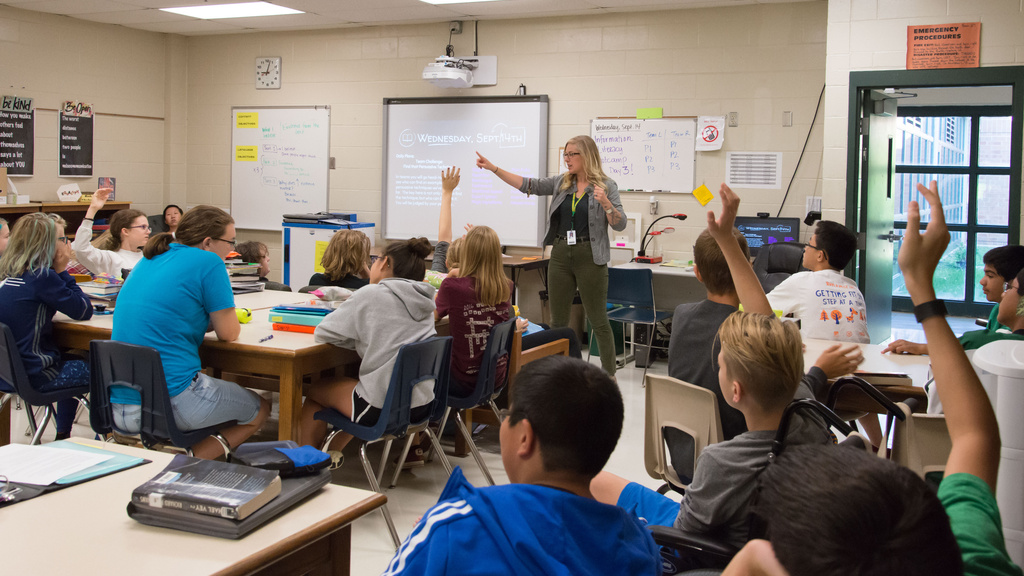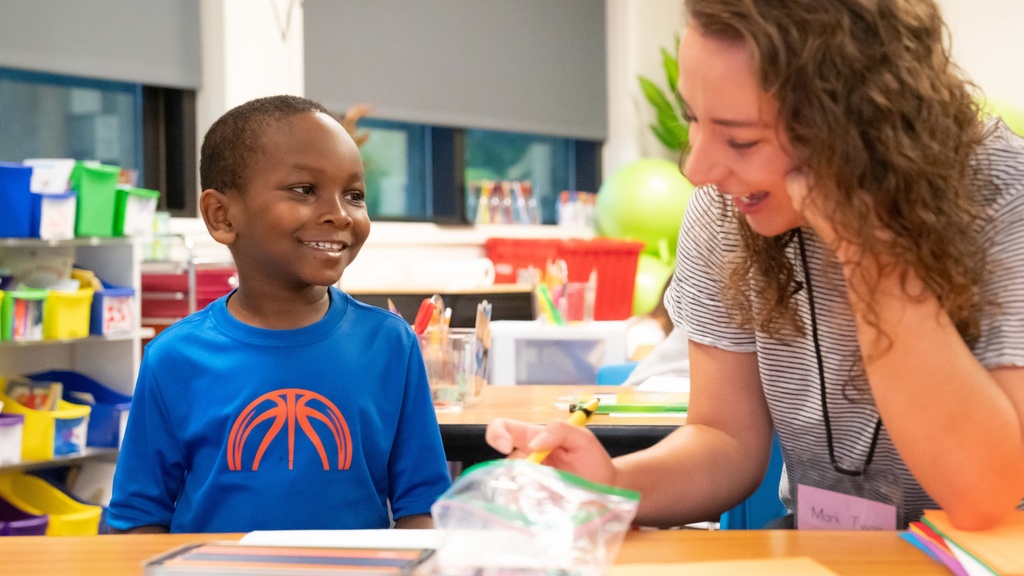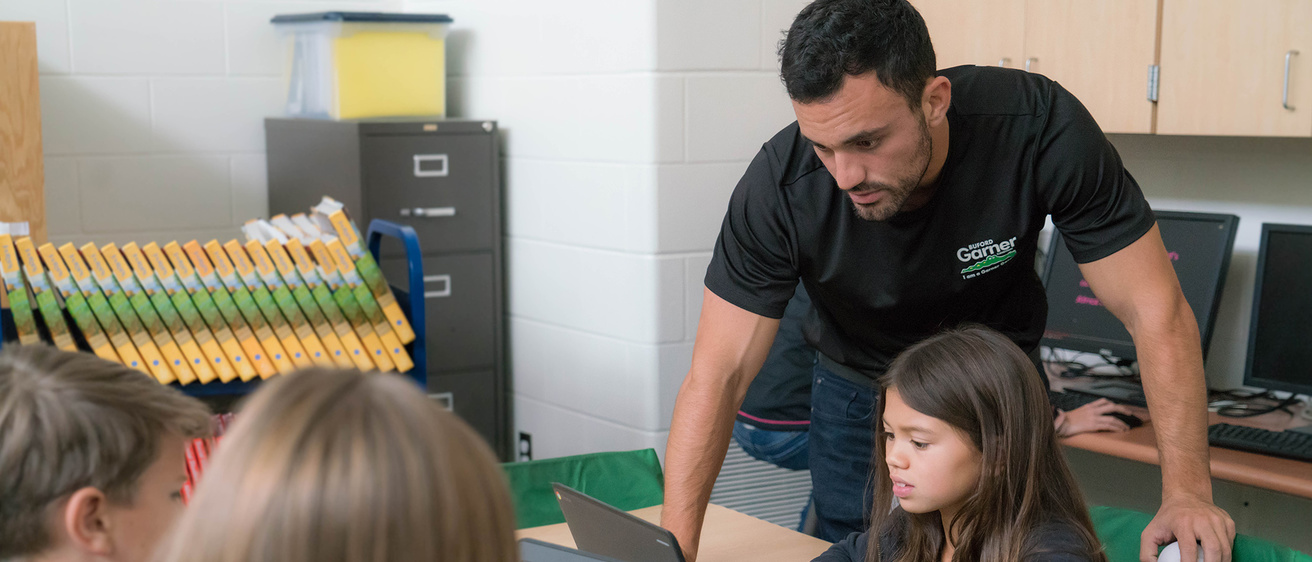The social studies education program prepares educators to expand and deepen their students’ critical knowledge and thinking about history, government, geography, and the social sciences. Our students learn to ask compelling questions about complex social issues and design relevant curriculum that aims to develop civically-engaged and globally-minded citizens.
Questions?
Programs with Teacher Licensure
BA Social Studies Education
For those seeking to teach in grades 5–12, this dual-degree program leads to a BA and licensure in social studies education.
MAT Social Studies Education
For those holding a bachelor’s degree, this program leads to a Masters of Teaching (MAT) degree and licensure in social studies education.
Licensure Only
For those holding a BA and seeking a fast-track path to teach in grades 5–12, this program leads to licensure in social studies education with no master’s degree.
Programs (Non-licensure)
MA Social Studies Education
For those seeking advanced study in social studies curriculum, instruction, and/or research, this program leads to an MA degree with no teacher licensure.
PhD Language, Literacy, and Social Studies Education
For those pursuing a career in academia, educational research, curriculum development, or teacher education, this program involves advanced study of theory and research in the social studies and related fields.
Endorsements
For maximum preparation and employability, the social studies program recommends obtaining one of the following endorsements. Both allow you to teach a broad array of history and social science courses in grades 5-12:
- 5-12 Social Sciences - Basic
- 5-12 All Social Sciences
Single-subject-area endorsements are also available:
- 5-12 American Government
- 5-12 American History
- 5-12 Anthropology
- 5-12 Economics
- 5-12 Geography
- 5-12 Psychology
- 5-12 Sociology
- 5-12 World History
Teacher Education
Our Teacher Education Program provides diverse experiences with supportive mentors to effectively prepare you for your future classroom.
To learn more about classroom experiences and the Teacher Education program, please:

Classroom Experience and Student Teaching
We believe you shouldn’t have to wait until your final semester of college to work with students and make sure teaching is right for you. In your program you will be given opportunities to work in real classrooms with students from the moment you are admitted to the program.

Teacher Leader Certificate
The certificate encourages strong classroom leadership skills, helps you better understand the context in which our schools operate, and enables you to better innovate, improve, develop and discover your identity as an emerging teacher leader. Prepare to support your students’ social emotional learning needs and become a stand-out hire after graduation.
“Without the support of the college of education staff and the opportunities provided, I would not be where I am today,”
-Anna Haller (B.A. ‘18 Social Studies Education)
Faculty and Research
Our faculty conduct research on the teaching and learning of social studies.
To see associated faculty, please visit: Faculty Listing.
Areas of expertise:
- History teaching
- Global studies
- Teacher Leadership
- Curriculum design
Admissions and Application
Please visit the degree pages for specific admissions information:
Apply Now
Please review the requirements and supplemental documents for your degree option before starting.
News

Just Crushing: A Demolition Derby

Felderman juggles academics, parenthood on journey to becoming educator
Program Resources
Online Resources
Bringing History Home (BHH)
This is a valuable website, especially for secondary school history teachers working with 6th or 7th grade students. Other secondary school teachers will want to see the sophisticated ways elementary school teachers offer history to younger students. They may want to use the lessons for older students.
Calisphere
Although centered on California history, this site has a remarkable array of primary sources teachers can analyze and interpret with their students. Clicking on "Gold Rush" or "World War II", for example, takes teachers or their students to photos, posters and other documents that they can integrate into lesson plans (teachers) or presentations (students), while deepening knowledge of history. This site is a gem. Do not miss it.
Digital History
United States history teachers, and those who want to teach US History, should study and use this website. Digital History has a remarkable array of resources, including "digital videos," that spark students' interests in a variety of topics, including "The World before 1492," "The Puritans," "The Alamo," "Japanese Internment," and "The Vietnam War." Check out this site!
Educational Uses of Digital Storytelling: Social Studies
The web link above takes you to the social studies section of the University of Houston's Digital Storytelling website. While encouraging you to explore the entire site, the link above takes you to the social studies section where you will find "digital documentaries." After clicking on the link above, take a look at some of the short documentaries you find there. Imagine yourself, as a teacher, using these short documentaries as part of a lesson plan or unit of instruction. Imagine asking your students to make documentaries to deepen understanding of past or current events. Imagine further having them show their productions to their classmates, parents or people in the communities. As part of the Social Studies Education Program at The University of Iowa, we have prospective teachers make desktop documentaries so they, in turn, can enable their students to use this new media to create multimedia documentaries of past events (e.g., development of atomic weaponry), as well as contemporary issues or crises (e.g., genocide in Darfur) -- and to share them with others!
Iowa Core Curriculum and Social Studies
For anyone wanting to teach history or the social sciences, they can expect the Iowa Core Curriculum to influence their careers in classrooms for decades to come. Those interested in teaching social studies or those already in The University of Iowa Social Studies Education Program should explore the Iowa Core Curriculum website to familiarize themselves with concepts and skills the State of Iowa expects students in the State's elementary and secondary schools to attain in history and the social sciences.
To view the Iowa Core Curriculum, click on the link above and then find "social studies" on the menu to the left hand side of the screen. Upon clicking "social studies", a drop-down menu appears showing Behavioral Sciences, Economics, Geography, History, Political Science, and Civic Literacy.
By clicking on any one of these academic areas, those interested in history and social studies will soon recognize that Iowa's students are expected to comprehend sophisticated concepts through teaching methods that emphasize higher order thinking such as application, analysis, synthesis and evaluation. The University of Iowa Social Studies Education Program works to prepare teachers who can successfully implement the Iowa Core Curriculum.
Page at a Time: Visual Literacy
Visual literacy has become a prominent concern of teachers in all areas, including history and the social studies. In The University of Iowa Social Studies Education Program, we take seriously the power of images and the importance of teachers and students to view them analytically and critically. Clicking on the link above takes you to a lesson published in the Page at a Time website. The website is the product of collaboration between Miami-Dade County Public Schools and The Wolfsonian Museum of Art. The link above presents a lesson plan which enables early middle school students to analyze and compare two striking images. Be sure to scroll down to the images and compare them yourself.
American History
Comprehensive Sites:
History Matters - Designed for use in a U.S. History survey course. Among the many resources on this site are links to primary resources and their evaluation, the citation and evaluation of web sites, lesson plans, and annotated links to hundreds of additional historical sites.
Index of Resources for U.S. History - A comprehensive "megasite" for United States History.
Civil War
The Valley of the Shadow: Two Communities in the American Civil War - Allows students to view and use primary resources (especially newspapers of the time) to better understand the conflict from both sides. Lesson plans for grades 7-12 included.
1900s
New Deal Network - Images, articles, speeches, and letters are only some of the available materials at this site from the Franklin and Eleanor Roosevelt Institute.
World History
Internet History Sourcebooks Project - Each sourcebook is a gateway to hundreds, even thousands of resources-texts, images, and additional links. Among the numerous topics for which a sourcebook exists are: African, Ancient, Jewish, Modern, and women's history. Searchable.
Kathy Schrock's Guide for Educators (World and Ancient History sites) - Links to sites for students and teachers.
Ancient World
Just for kids, Antiquity on the Web - Primarily on Greece and Rome the sites linked to here are for elementary students.
Middle Ages
Middle Ages - From Annenberg/CPB, this companion site to their materials, which can be used independently, provides a good introduction to medieval life. Grades 4-8.
Modern History
Modern History A Teacher's Guide to the Holocaust - "An overview of the people and events of the Holocaust through photographs, documents, art, music, movies, and literature."
Geography
50 States.com - Statistical information plus state bird, state song and more. Maps included as well as links to each state's official page.
National Geographic Society - Online adventures, lesson plans and printable maps.
State Facts for Students - created by the U.S Census Bureau, this site allows users to click on their state and learn many fun, fast facts. Also available is a teacher guide with lesson ideas for using this site with students.
Searching for China - Designed as a webquest in which students can role play as they learn, this site presents numerous links to informational sites about China and includes information about Chinese culture, business, and government.
The World Factbook - Country information including political parties, geographical information, and population.
Civics
Background Notes - U.S. Department of State publications which include facts about the land, people, history, government, political conditions, economy, and foreign relations of countries, independent states, some dependencies, and areas of special sovereignty.
Ben's Guide to Government - Information and activities for teachers, parents, and students K-12 (with grade ranges K-2, 3-5, 6-8, and 9-12) about our government and how it works.
Democracy Web - an online study guide and interactive world map based on Freedom House's Freedom in the World reports, which allows secondary students to use comparative studies to better understand the American form of Government and compare levels of freedom and civil rights across nations.
Project Vote Smart - Information on candidates, issues, and election results. Middle school/Secondary.
Global Education
Gapminder is a non-profit venture – a modern “museum” on the Internet – promoting sustainable global development and achievement of the United Nations Millennium Development Goals.
Oxfam provides curriculum, resources, and lesson ideas for incorporating global perspectives in the K-12 classroom.
IREX - Teachers can participate in professional development seminars and travel with IREX.
Developing a Global Perspective provides resources and curriculum specific to integrating global education in social studies.
The Asia Society's Center for Global Education provides resources and matrices for measuring student learning and global competence.
Contact Us
Maia Sheppard, Program Coordinator
N236 Lindquist Center
319-467-3116
maia-sheppard@uiowa.edu
Questions?
We're here to help! Just email us at
ask-education@uiowa.edu.
